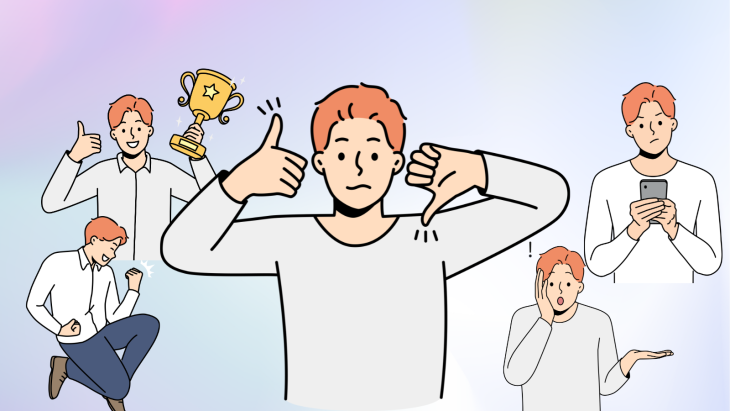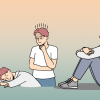Recent Posts
- Escapism. When is it healthy? When is it damaging?
- My parents are now in their 60s. How can I maintain a healthy relationship with them?
- Can we survive a long distance relationship? How do other people do it?
- Hobbies as an adult. Are they necessary?
- Looking at common beliefs on love and connection. Busting relationship myths.
Most Popular
How much do we need to be really happy?

After reading the short story of Leo Tolstoy called “How much land does a man require?,” I got to thinking about happiness and how much income an average person needs to be happy.
Of course, it is impossible to arrive at one number that would satisfy everyone, since we are in unique life circumstances. But what does research say about it? Let us find out.
Income and happiness
It is interesting to know the relationship between the two because we tend to hold on to the notion that the bigger our income, the happier we are supposed to be. However, statistics show that the United State’s overall economic growth has tripled in the last 50 years, while overall life satisfaction or happiness lagged behind.
Almost a million respondents in 135 countries were asked from 2005 to 2011 about the factors that contributed to their happiness. Head researcher Edward Diener found that people’s optimism, having realistic goals, and the ability to afford more things with their current income actually were more significant predictors of happiness than increasing income.
The research also found that:
- Increases in income also increased positive feelings
- A country’s Gross Domestic Product (indicator of economic growth) did not have a significant effect on personal happiness
- Increasing income increased happiness if people were able to buy more material things
Income as it related to day to day happiness and overall life satisfaction
In 2010, research by Daniel Kahneman and Angus Deaton blew up to popularity after they found insights about happiness and income.
First, they differentiated day-to-day happiness, which they called emotional wellbeing, and overall life satisfaction, which they called life evaluation. Then they checked whether income had an effect on the two kinds of wellbeing.
They found that:
- Emotional wellbeing and life evaluation are affected by different factors.
- Income and education were more closely associated with overall life satisfaction. The higher the income and level of education, the better satisfied the person is with their life in general.
- Daily emotions and happiness was predicted by current health status, caregiving, loneliness and smoking.
- Day-to-day happiness was directly affected by income, but significant increases in happiness stopped after the annual income of 75,000 dollars.
- Low income increased the participants’ feelings of pain from adverse life events such as divorce, poor health and loneliness.
Perhaps the most interesting result was the figure $75,000 as the threshold where happiness is not affected anymore by increases in income.
Is it really $75,000?
What is fascinating about research is that another study might come along to contradict others before it. Twelve years after the popular 2010 study, researchers Matthew A. Killingsworth, Daniel Kahnemanb, and Barbara Mellers proposed that income did increase happiness- but its effect went over and beyond $75,000. It went up to $500,000 of annual income!
Rich, but not happy?
One thing to note, however, was that there was a small group of people earning well beyond $100,000 whose happiness did not increase as their income increased. The researchers concluded that other factors such as adverse life events (For example, loss of loved ones, even mental illness) were overwhelming the happiness that more money would have brought to them.
There is still room for more data and insight on what makes people happy and the role of our economic status on our life satisfaction, but we can conclude that money, although important in bringing us security and comfort, is not the only determinant of happiness. In fact, other studies have looked into the impact of faith, fitness, family and friends on our happiness.
Awareness about these factors give us a more holistic perspective on our wellbeing and hopefully they empower us to make more choices that allow us to feel happier.








Comments